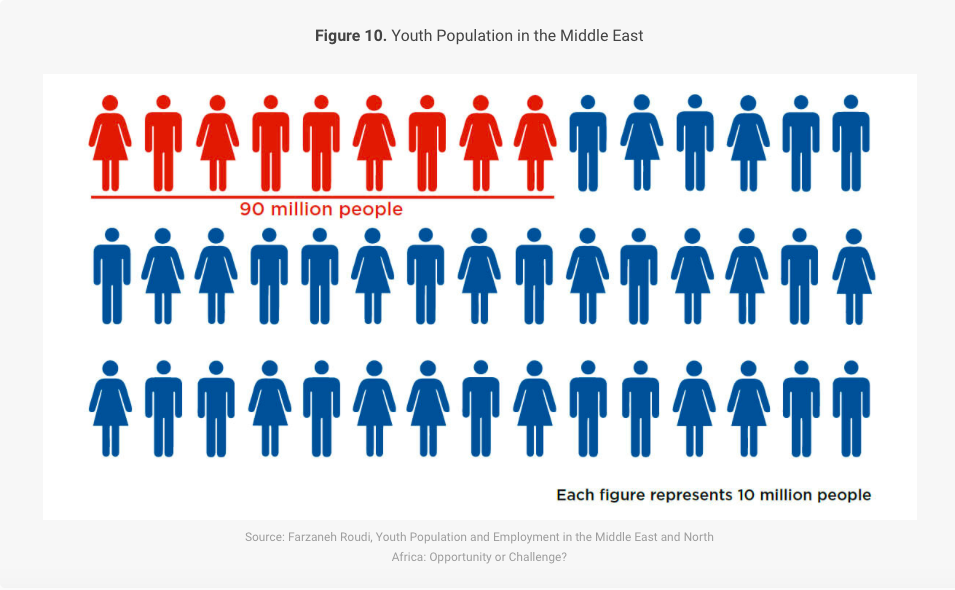Lesson Plan January 10, 2017
Assessing Our Understanding of the Fragmentation of Religious Authority in Select Middle Eastern Societies
Country:
Grades:
To assess the effect of the fragmentation of religious authority in select Middle Eastern countries, students should use the guiding questions provided below while they read pages 30-33 of The Middle East Strategy Task Force Final Report. After discussing the excerpt as a class, students will create polls/surveys to assess their peers understanding of Islamic terrorist recruitment strategies and the connection between recruitment strategies and the fragmentation of religious authority. Students will conclude this 3-day lesson by critically analyzing their findings and teaching the students they initially polled about the recruitment strategies addressed in the The Middle East Strategy Task Force Final ReporStudents learn about the fragmentation of religious authority in Middle Eastern countries. They then create polls to assess their peers' understanding of Islamic terrorist recruitment strategies
Guiding Questions
"The Fragmentation of Religious Authority and Its Consequences" (P. 30-33)
The Middle East Strategy Task Force Final Report, The Atlantic Council
Co-Chairs: Madeleine Albright and Stephen Hadley
Executive Team: Stephen Grand Jessica P. Ashooh
1. Why did the public of various regions begin to view traditional religious leaders as compromised? Use the Internet to research and find specific examples.
2. How and what new communication technologies elevated controversial voices that would have otherwise been marginalized? Explain. Explain the effect of these voices enjoying a much larger audience than ever before.
4. Compare this with new communication technologies used in the US to elevate controversial voices. Cites specific examples and explain.
5. Compare and contrast Albright and Hadley's explanation of factors that lead people to join Islamic terrorist groups with another well respected expert's explanation of factors that lead people to join Islamic terrorist groups. Perhaps you could compare the Albright/Hadley perspective with Scott Anderson's perspective vis-à-vis his "Fractured Lands" piece published by the New York Times.
6. Why does the Al-Qaeda recruiting manual state "Non-religious Muslims are the preferred sector (for recruitment.) This is because you will be the one to guide him." Explain.
7. In your opinion, why do most Americans (and most people outside the areas affected by Al-Qaeda) believe that Al-Qaeda recruits highly religious people?
8. Is it important to teach others about al-Qaeda recruiting strategies? Why or why not. Explain.
After critically reading the excerpt, students should engage in a fruitful class discussion based on the fragmentation of religious authority in select Middle Eastern countries. Next, students (in groups of 4) should create a poll/survey using a free site such as polleverywhere.com or surveymonkey.com to assess their peers understanding of Islamic terrorist recruitment strategies. Student groups will write 2-4 questions as part of their poll/survey and and conduct their poll/survey in the lunchroom and/or homeroom the following day.
Students should familiarize themselves with the basics of survey question writing before creating the official poll/survey they will use. Here's one helpful website: https://blogs.constantcontact.com/how-to-write-survey/
Students should bring their findings to class the following day so that we can aggregate, analyze and assess the data as a class. Students will return to the same lunch room tables and/or homeroom to share the Atlantic Council's expert understanding of this complicated topic. Students will distribute hand-outs so that the newly informed students have something to reflect on as they continue their day.
<p>This lesson should be implemented in conjunction with students reading pages 30-33 of the <em>The Middle East Strategy Task Force Final Report</em> published by The Atlantic Council and co-chaired by Madeleine Albright and Stephen Hadley. Pages 30-33 cover “The Fragmentation of Religious Authority and Its Consequences” Click here for a link to the PDF: http://www.atlanticcouncil.org/images/publications/MEST_Final_Report_web_1130.pdf</p>
REPORTING FEATURED IN THIS LESSON PLAN
-
 English
EnglishProject
On Rebuilding the Middle East
Former Secretary of State Madeleine Albright and former National Security Advisor Stephen Hadley...






